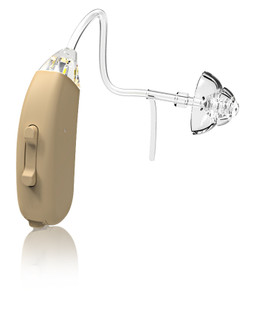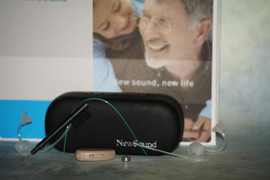Understanding Cochlear Implants: How They Work and Who They Help
Posted by DR Paul on Sep 21, 2024
For individuals with severe to profound hearing loss, cochlear implants can be life-changing devices that help restore their ability to hear. While hearing aids are a common solution for many individuals with hearing loss, cochlear implants are often recommended for those who do not benefit from traditional hearing aids. In this blog post, we will delve into how cochlear implants work, who they help, and why they may be the right choice for those in need of a more advanced hearing solution.
Cochlear implants work by bypassing the damaged parts of the ear and directly stimulating the auditory nerve.
Unlike hearing aids, which amplify sounds so they can be detected by remaining hair cells in the inner ear, cochlear implants convert sound waves into electrical signals that are sent directly to the brain. This allows individuals with severe hearing loss to perceive sound even if their hair cells are no longer functioning properly. The implant consists of an external microphone and speech processor that captures sounds and converts them into digital signals, which are then transmitted to an internal receiver implanted beneath the skin behind the ear.
Who can benefit from cochlear implants?
Candidates for cochlear implants are typically individuals who have severe to profound hearing loss in both ears and have not experienced significant improvement with traditional hearing aids. This includes individuals with sensorineural hearing loss, which is caused by damage to the hair cells in the inner ear or auditory nerve. Children born deaf or with severe hearing loss may also be candidates for cochlear implants, as early intervention can greatly improve their language development and overall quality of life.
It's important to note that cochlear implants are not suitable for everyone with hearing loss.
Individuals with partial hearing loss or those who can benefit from traditional amplification devices may not be good candidates for cochlear implants. Additionally, there are certain medical conditions that may preclude someone from being eligible for a cochlear implant surgery. It's essential to undergo a comprehensive evaluation by an audiologist or otolaryngologist to determine if a cochlear implant is the right choice for you or your loved one.
The benefits of cochlear implants extend beyond just improved hearing ability.
Studies have shown that individuals who receive cochlear implants experience better communication skills, increased social engagement, improved cognitive function, and enhanced quality of life overall. Many recipients report feeling more confident and less isolated after receiving a cochlear implant, as they are able to participate more fully in conversations and activities that were once challenging due to their hearing loss.
In conclusion:
understanding how cochlear implants work and who they can help is crucial for individuals considering this type of advanced hearing solution. While not everyone with hearing loss is a candidate for a cochlear implant, those who meet the criteria can experience significant improvements in their ability to hear and communicate effectively. If you or a loved one is struggling with severe to profound hearing loss despite using traditional amplification devices, it may be worth exploring the option of a cochlear implant with guidance from an audiologist or otolaryngologist. Cochlear implants have transformed the lives of many individuals with severe hearing loss, offering them renewed hope and independence in their daily lives.










